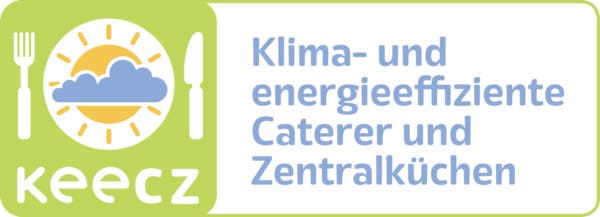KEECZ - Climate and energy efficient caterers and central kitchens
KEECZ determines GHG saving potentials in daycare centre and school catering using the example of apetito AG's menu range. For this purpose, the product portfolio and sales of menus are examined, GHG emissions analysed and optimisation proposals developed.
KEECZ's field of action is the development of potential GHG savings in daycare centre and school catering. So far, daycare centres and schools, daycare centre and school authorities, networking centres for daycare centre and school catering, caterers, central and mixed kitchens have primarily been guided by the following criteria Flavour, Health and Costs of nutrition. Just a few years ago, the topics Organic and Seasonal-Regional have been added. However, all relevant criteria to date have little or no significance for climate protection. Despite its great importance, the topic of Climate protection in general daycare centre and school catering. The current quality standards of the German Nutrition Society (DGE) now take greater account of sustainability in daycare centre and school catering, explicitly with the keyword "climate protection". The German government's nutrition strategy - published in January 2024 - aims to make the DGE quality standards mandatory. With the KEEKS project (2016-2019, FKZ FKZ03KF0037A-E, funded by the BMU), we have shown the potential for climate protection in school kitchens. In KEECZ, however, the IZT and apetito AG want to go one step further: Is it possible to use Sustainable Value as a basis for sustainable daycare centre and school catering? This indicator goes beyond climate protection - it takes into account all environmental impacts of the food chain as well as social and economic factors.
The predecessor project KEEKS (2016-2019, funded by the BMU) was able to show that around 40 per cent of GHG emissions could be saved in mixed kitchens at school. This is possible thanks to 19 measures that comply with the DGE quality standards and utilise their possibilities (e.g. only offering meat once a week). In other words, of the average 1,300 g of GHG emissions for a meal at primary school, more than 500 g of CO2-eq could be saved. With KEECZ, another form of catering - in this case cook&freeze - is being investigated, and the largest provider of out-of-home catering - apetito AG - is also involved in the project. In order to assess the potential CO2 savings, we first analysed the impact of three KEECZ project measures on different target groups:
- Optimisation of selected apetito dishes according to their climate impact (Top 50 menus).
- Roadmapping of options for action with practice partners as part of two round tables.
- Reducing knowledge deficits among day-care centre and school caterers through presentations and training.
Taking these three measures into account, around 20,000 tonnes of CO2 eq. could be saved in the first two years and more than 60,000 tonnes of CO2 eq. over a period of eight years (effective period of measure 3 with four years).
More info
Info
Project management
Research field
Title
KEECZ - Climate and energy efficient caterers and central kitchens
Duration
05.2024 to 04.2027
Grant/contracting authority
Funding code
FKZ03KF0037A-E
Info
Title
KEECZ - Climate and energy efficient caterers and central kitchens
Duration
05.2024 to 04.2027
Grant/contracting authority
Research field
Project management
